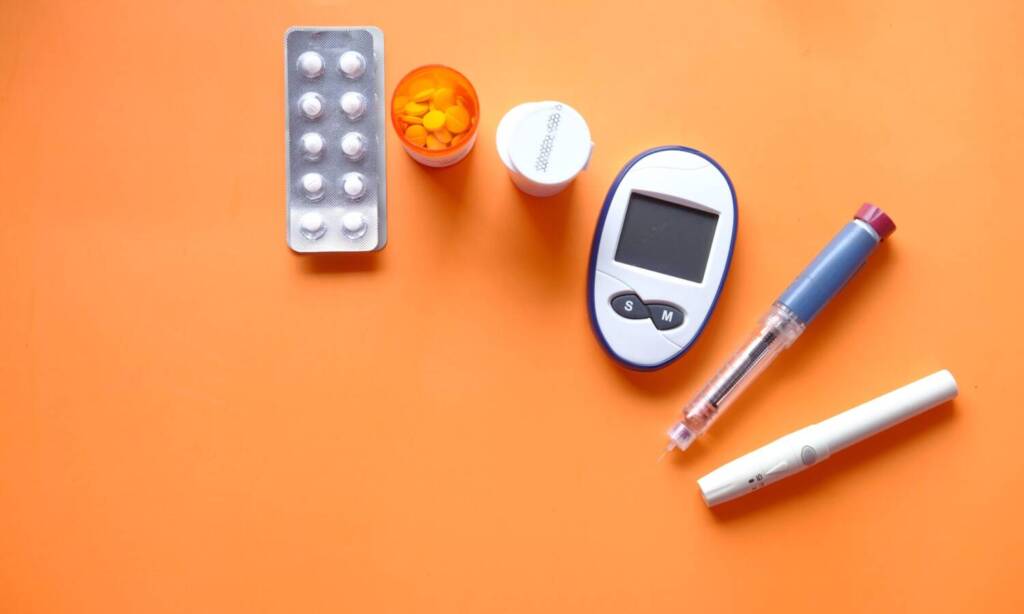
Ladies, you can lower your risk of diabetes by using cannabis daily, according to a study
This article originally appeared on Cannabis.net and has been republished with permission.
While statistics indicate that men are more likely to develop diabetes than women, the complications can be far worse in women than in men.
According to the Centers for Disease Control and Prevention (CDC), diabetes increases women’s risk of heart disease fourfold, and women have significantly worse heart attack outcomes than men. In addition, women are also prone to diabetes-related complications such as depression, kidney disease and blindness.
Photo by TesaPhotography via Pixabay
Now, a new study shows that consuming cannabis in large quantities may help reduce the risk of diabetes.
The study, published in the journal Cannabis and Cannabinoid Research, was conducted by graduate students from the Texas A&M University School of Public Health and a colleague from Hofstra University. They looked at data from the National Health and Nutrition Examination Survey from 2013 to 2018, which was conducted by around 15,000 participants. Most of the participants were white women, over 40 years old and with at least a college degree.
Researchers analyzed their cannabis use based on frequency and exposure. Light users were associated with smoking cannabis less than 4 times a month, while heavy users were associated with those using cannabis more than 4 times a month. In addition, they checked their medical diagnosis for diabetes status or their fasting blood glucose, plasma glucose, or hemoglobin A1C levels.
They found that the women who were heavy cannabis users were less likely to be diagnosed with diabetes compared to the women who did not use cannabis. Meanwhile, it was found that women who were light cannabis users were not associated with a diagnosis of diabetes. In men, the researchers found no link between cannabis use and diabetes.
Older studies show a reduced prevalence of diabetes among cannabis users
There are older studies supporting the hypothesis that cannabis use may be associated with a reduction in diabetes.
In 2012, a study published in the British Medical Journal found that adults with a history of cannabis use had a lower prevalence of type 2 diabetes. They were also found to have a lower risk of becoming infected with cannabis compared to people who had no history of marijuana use.
Researchers from the University of California, Los Angeles analyzed the association between cannabis use and diabetes mellitus (DM) in adults aged 20 to 59 in a sample of 10,986 adults. They grouped into non-cannabis users, who made up 61% of the population; heavy users: those who used more than 5 times a month, light users: those who used 1 to 4 times a month, past cannabis users who made up 30% of the population, and current cannabis users.
RELATED: COVID-19 May Trigger Diabetes – Can Marijuana Help?
Before the results were published, researchers hypothesized that type 2 diabetes would be less common among cannabis users because cannabis is rich in cannabinoids, which are anti-inflammatory and immunomodulatory.
They then found that past and current cannabis users actually had a lower prevalence of diabetes, even after the researchers adjusted the results to compensate for social variables such as physical activity level, ethnicity, etc. However, they found no correlation between other chronic conditions and cannabis use. Additionally, past and current marijuana users reported being more physically active compared to non-users, although they also had higher triglyceride and total cholesterol levels.
“Our analysis of adults aged 20 to 59 years … showed that participants who used marijuana had a lower prevalence of DM and lower probabilities of DM compared to non-marijuana users,” they concluded.
 Photo by Towfiqu barbhuiya via Unsplash
Photo by Towfiqu barbhuiya via Unsplash
“Prospective studies in rodents and humans are needed to determine a possible causal relationship between cannabinoid receptor activation and DM. Until these studies are conducted, we are not advocating the use of marijuana in patients at risk of DM,” they cautioned.
In 2021, the results of a preliminary study showed that CBD could be beneficial in reducing the absorption of glucose from food, which then effectively lowers blood sugar levels. Before this study, the impact of CBD on alpha-glucosidase wasn’t really well understood. Alpha-glucosidase is an enzyme that helps the human body digest dietary carbohydrates and starches to produce glucose, which is then absorbed by the intestines, but this process causes blood sugar levels to rise.
RELATED: CBD for diabetics
People with type 2 diabetes are often prescribed alpha-glucosidase inhibitors, which work by slowing the absorption of carbohydrates in the small intestine. They then lower blood sugar and insulin levels.
For the study, the researchers analyzed various CBD concentrations ranging from 10 to 1216 μM. They also examined the inhibitory effects of CBD using a yeast enzymatic assay along with molecular docking and examined how stable it was in intestinal and gastric fluids by high-performance liquid chromatography analysis.
They discovered that CBD has a moderate inhibitory effect against alpha-glucosidase and also found that it was stable in intestinal and gastric fluids. Additionally, they found that there was a beneficial association between high levels of CBD and inhibition of alpha-glucosidase activity.
Why cannabis can work well in the fight against diabetes
We may need more studies to back up the claims, but these mentioned results only scratch the tip of the iceberg when it comes to the mass of hopeful studies showing cannabis may be beneficial for preventing and treating diabetes.
We already know that the endocannabinoid system seems to be overactive in people with diabetes or obesity, but consuming cannabis or CBD is a way to treat it and restore its balance.
This article originally appeared on Cannabis.net and has been republished with permission.

Post a comment: